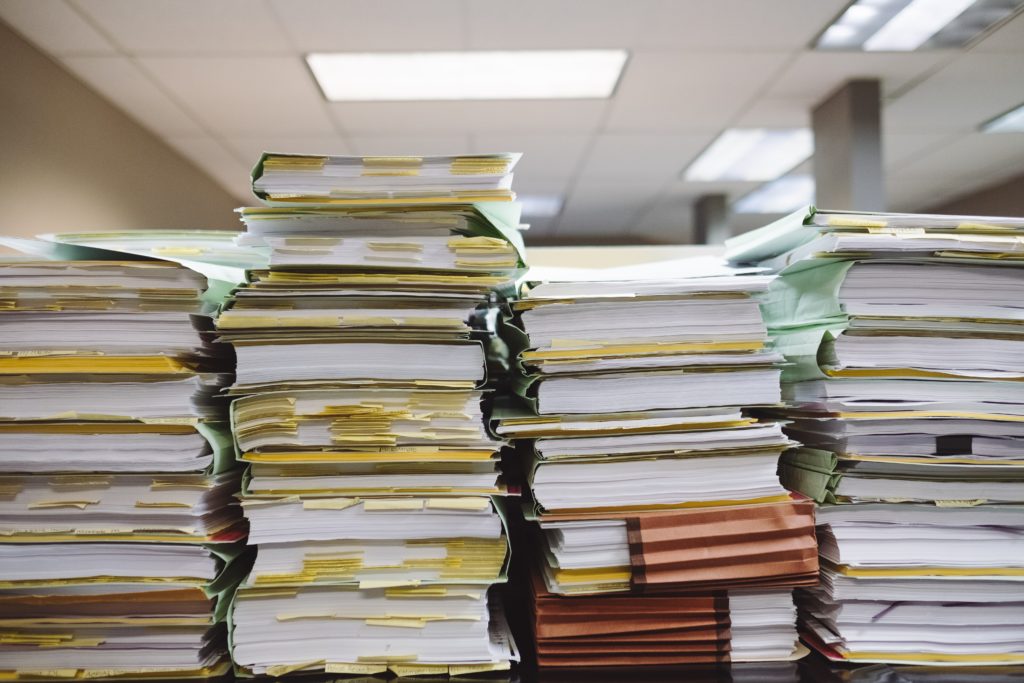 Do you secretly worry that if you put your winter clothes away, it’ll snow? Or that throwing away the receipt for an appliance will cause it to start malfunctioning?
Do you secretly worry that if you put your winter clothes away, it’ll snow? Or that throwing away the receipt for an appliance will cause it to start malfunctioning?
This is the kind of magical thinking that lingers around old tax returns: the fear that if you throw them away, you’ll need them again. While keeping tax records until your filing cabinet groans under the weight of decades-old returns and receipts may be comfortable, it isn’t necessary.
After being stuck at home for months, thanks to the Coronavirus, you might be wondering what to do with those stacks of old tax returns and other tax records. Is it okay if you just throw them away? Is it necessary to maintain the hard copies? How are you going to get them out of the way and out of sight?
Here’s everything you need to know about why you have to hang onto your tax records — and when and how you can get rid of them without anxiety or regret.
In Canada, Contrary to popular belief, the Canada Revenue Agency (CRA) can only probe so deep into your tax history – six years to be exact. This is the amount of time you must legally keep previous tax returns and supporting documents.
The six-year period begins at the end of the tax year in question. A 2015 tax return and its supporting records, for example, are safe to delete at the end of 2021.
If you want to delete your tax documents before the six-year time is up – example, because you’re relocating to Fiji and want to travel light — you must first obtain written permission from the CRA.
In US, the general rule is that you should maintain your tax records for three years, but there are some key exceptions for when you, as a taxpayer, may need to keep your tax records for a longer period of time.
If you claim a deduction for worthless securities or bad debts, you must retain your records for seven years. For example, if you lent a friend USD$10,000 under a promissory note and the friend went bankrupt, retain records to verify that it was a legal debt discharged in bankruptcy that was never paid.
Employment taxes are another type of special tax item. Keep records for employment taxes for four years, starting with the day the tax is due and ending with the date the tax is paid.
If your tax return includes information about property, maintain those records until the statute of limitations, (which is usually three years) expires for the year in which you sell or otherwise dispose of the property.
In some cases, the statute of limitations extends beyond three years. For example, if you fail to report needed income and it exceeds 25% of the income stated on that year’s tax return, the IRS has six years to audit your return.
Furthermore, failing to file or filing a fake tax return permits the IRS to audit you permanently. So save any tax records for those years for the rest of your life.
If you’re positive you won’t need your records after a respective period has gone, by all means, get rid of them — but do so with caution. Resist the urge to throw everything in the recycle bin and go about your business. Your records contain significant amounts of personal information that identity thieves would love to get, such as your SIN and employment information.
Shredding is probably your best bet for properly disposing of paper tax records. If you choose to file electronically and preserve digital copies of your tax records, be sure your computer is password protected.
After all, having your personal information stolen is far more frustrating and inconvenient than being expected to keep outdated tax records.
Whatever the reason for the CRA’s request for your income tax records, IDM has your back. Our tax professionals can answer all of your inquiries and even deal with the CRA on your behalf if you get audited. If you need assistance, reach out to us.